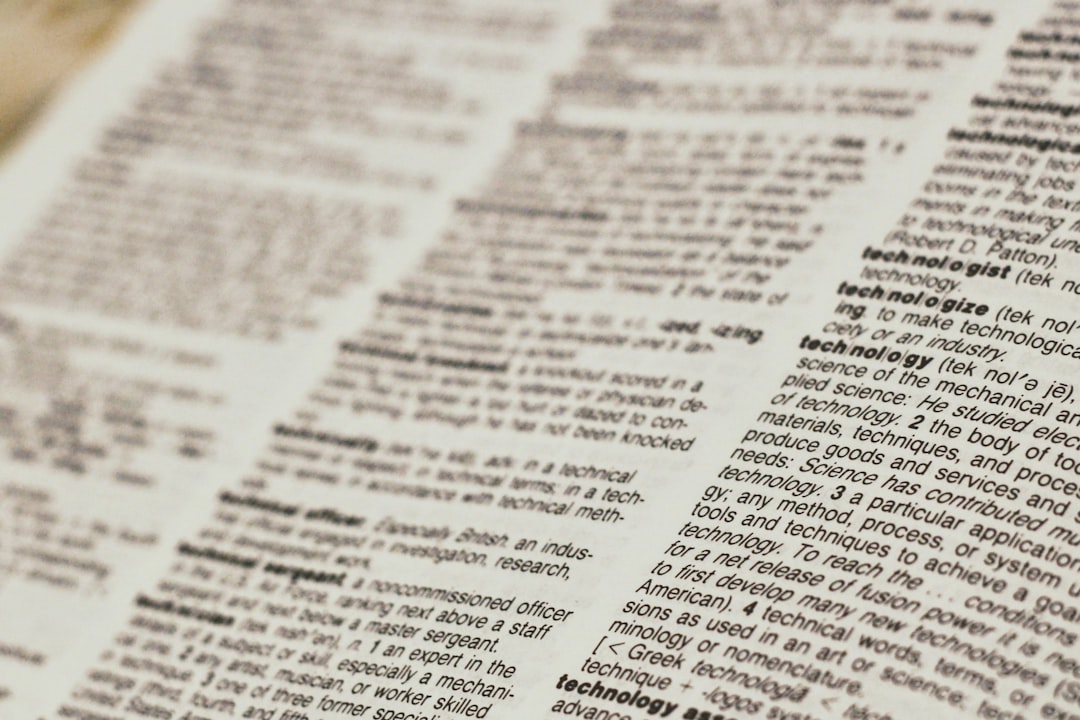Dictionary vs. Thesaurus
What's the Difference?
A dictionary and a thesaurus are both valuable tools for language reference, but they serve different purposes. A dictionary provides definitions, spellings, and pronunciations of words, as well as their usage in sentences. It helps users understand the meaning and context of a word. On the other hand, a thesaurus provides synonyms and antonyms for words, allowing users to find alternative words with similar or opposite meanings. It helps users expand their vocabulary and enhance their writing by offering a range of word choices. While a dictionary focuses on the meaning of words, a thesaurus focuses on their relationships with other words. Both resources are essential for effective communication and language comprehension.
Comparison

| Attribute | Dictionary | Thesaurus |
|---|---|---|
| Definition | Provides meanings and explanations of words | Provides synonyms and antonyms of words |
| Usage | Used to understand the meaning and usage of words | Used to find alternative words with similar or opposite meanings |
| Organization | Arranged alphabetically | Arranged by similarity of meaning |
| Entries | Contains individual words with their definitions | Contains words grouped by their meanings |
| Word Relationships | Does not explicitly show word relationships | Shows word relationships through synonyms and antonyms |
| Language | Provides definitions in a specific language | Provides synonyms and antonyms in a specific language |
| Usage Examples | May include example sentences to illustrate word usage | Does not typically include usage examples |

Further Detail
Introduction
When it comes to expanding our vocabulary and finding the right words to express ourselves, two essential tools come to mind: the dictionary and the thesaurus. Both of these resources play a crucial role in language comprehension and enrichment. While they serve similar purposes, there are distinct differences in their attributes and usage. In this article, we will explore the characteristics of dictionaries and thesauri, highlighting their unique features and discussing how they complement each other.
Definition and Function
A dictionary is a comprehensive reference book that provides definitions, spellings, pronunciations, and often examples of usage for words in a particular language. It serves as a reliable source for understanding the meaning and correct usage of words. On the other hand, a thesaurus is a tool that lists words and groups them based on their similarities in meaning. It offers synonyms, antonyms, and related words to help writers find alternatives and enhance their vocabulary.
Structure and Organization
Dictionaries are typically organized alphabetically, with each entry containing the word's definition, part of speech, pronunciation, and sometimes etymology. They often include additional information such as usage notes, examples, and idiomatic expressions. Thesauri, on the other hand, are structured differently. They group words conceptually, categorizing them based on their semantic relationships. Entries in a thesaurus provide synonyms, antonyms, and related words, allowing users to explore different shades of meaning and find alternatives to express themselves more precisely.
Usage and Application
Dictionaries are indispensable tools for language learners, writers, and anyone seeking to understand the meaning of words. They are particularly useful when encountering unfamiliar terms or when trying to grasp the nuances of a word's definition. Dictionaries also aid in improving spelling and pronunciation, as they often provide phonetic transcriptions. Moreover, dictionaries are valuable resources for translators, helping them find equivalent words in different languages.
Thesauri, on the other hand, are primarily used to expand one's vocabulary and find alternative words or phrases. They are especially beneficial for writers, poets, and individuals who want to add variety and depth to their language. By offering synonyms, antonyms, and related words, thesauri enable users to avoid repetition and choose the most appropriate word for a specific context. They can also assist in overcoming writer's block by providing inspiration and suggesting alternative ways to express ideas.
Complementary Nature
While dictionaries and thesauri have distinct functions, they are not mutually exclusive. In fact, they complement each other and are often used in conjunction. When encountering an unfamiliar word, a dictionary provides the necessary information to understand its meaning, usage, and pronunciation. Once the word is understood, a thesaurus can be consulted to explore alternative words with similar or contrasting meanings. This combination of resources allows individuals to deepen their understanding of language and express themselves more effectively.
Benefits of Using a Dictionary
Using a dictionary offers numerous benefits. Firstly, it enhances vocabulary by introducing new words and their meanings. By learning new words, individuals can communicate more precisely and effectively. Secondly, dictionaries provide guidance on word usage, helping users avoid common mistakes and choose the appropriate word for a given context. Thirdly, dictionaries aid in language comprehension, enabling individuals to understand texts and conversations more accurately. Lastly, dictionaries promote independent learning, as they empower individuals to explore and discover new words on their own.
Benefits of Using a Thesaurus
Thesauri also offer several advantages. Firstly, they foster creativity and linguistic diversity by providing alternative words and expressions. This allows individuals to avoid repetitive language and inject variety into their writing or speech. Secondly, thesauri help individuals find the most suitable word for a specific context, enabling them to convey their ideas more precisely. Thirdly, thesauri encourage exploration and learning by introducing users to new words and expanding their vocabulary. Lastly, thesauri can be valuable tools for language learners, as they assist in understanding the subtle differences in meaning between words.
Conclusion
In conclusion, dictionaries and thesauri are indispensable resources for language learners, writers, and anyone seeking to enhance their vocabulary and language skills. While dictionaries provide definitions, spellings, and pronunciations, thesauri offer synonyms, antonyms, and related words. Both resources have their unique attributes and applications, but they are not mutually exclusive. By utilizing dictionaries and thesauri together, individuals can deepen their understanding of language, improve their communication skills, and express themselves more effectively.
Comparisons may contain inaccurate information about people, places, or facts. Please report any issues.